64 F. high in St. Cloud Tuesday.
63 F. average high on April 28.
45 F. high on April 28, 2014.
1.67" rain so far in April.
2.36" average April rain, to date.
5.77" April of last year, to date.
April 28, 1994: Snow over parts of Minnesota with 7.5 inches at Tower and 4.5 inches in the Twin Cities.
April 28, 1966: Snowstorm leaves 10 inches of snow on the ground across a wide chunk of northern Minnesota.
Neon Green
"April prepares her green traffic light and the world thinks Go!" wrote Christopher Morley in "John Mistletoe".
I'm
an equal-opportunity guy when it comes to our seasons. I love them all,
but there is something extra-special about spring. Before the onslaught
of mutant mosquitoes, drippy dew points and sputtering thunderstorms
Mother Nature seems to catch her breath and show off a little in the
process.
The older I get the less I take for granted. A year ago
highs were in the low 40s with flurries in the metro area. Today will be
weather perfection with blue sky, limitless visibility and highs
brushing 70F. The downtown skyline will look like something out of a
postcard. If we could only bottle these days for future consumption.
Weather
bliss spills over into much of next week with a streak of 60s & 70s
on tap. We'll see a few more chilly mornings in May but I don't see any
wintry relapses brewing. A renegade thundershower may kick up some dust
Friday; a better chance of soaking storms late Sunday.
On the
weather blog below: hot weather careers, why there will be no Hurricane
Isis this year, and how climate volatility may increase the risk of
earthquakes and volcanoes. Who knew?
Textbook "Upper Air Disturbance". Tuesday's visible satellite image (4:30 PM), courtesy of NOAA and
AerisWeather
showed evidence of a relatively cold pool of air aloft, sparking a
counterclockwise swirl of clouds and a few light showers. This
disturbance pinwheels east today, leaving us with bright, distracting
levels of sunshine.
Trending Warmer.
GFS model data from NOAA shows the 72-degree isotherm finally lifting
north. Even New England will warm up. 70s should be the rule into at
least the first half of next week. I've been waiting a long time to type
that sentence. Source: AerisWeather.
What A Difference.
A year ago today the high in the Twin Cities metro was 42 F. with a
trace of snow flurries. Today will seem like we're on a different planet
with blue sky, low humidity, limitless visibility and highs near 70F. A
shower or T-shower is possible Friday with a better chance of T-storms
Sunday.
"Tornado-Like" Force Struck Everest, Says Avalanche Survivor.
CBS News has the story and video clip; here's an excerpt: "
The avalanche that rolled across Everest base camp came through with the force of a tornado, according to American scientist Jon Kedrowski. Kedrowski was at the camp when an earthquake struck Nepal on Saturday, triggering the slide of snow that killed at least 18 people on the mountain, including four Americans..."
Lake Mead Water Levels, Records, Continue to Fall. Here's an excerpt of an update from
The Las Vegas Review-Journal: "...
Federal
forecasters expect the lake to stay in record territory and continue to
drop through the end of June, when it could dip as low as 1,073 feet
above sea level. After that, the reservoir should begin to inch back up
as Lake Powell delivers more water downstream. This should give record
keepers time to update their ledgers before next April, when the water
level will likely to enter historic territory once again. Should Lake
Mead start 2016 below the 1,075 mark, it will trigger the first federal
shortage declaration on the Colorado and prompt Nevada and Arizona to
cut back on the amount of water they take from the river..."
File photo above: "
This photo taken, Aug. 18, 2014, shows a view of the white "bathtub" ring around Lake Mead. Taken in the area near Callville Bay Resort & Marina." (AP Photo/The Sun, Steve Marcus).
Air Force's Plan To Drop U.S. Forecast System For U.K. Model Draws Criticism. Meteorologist Jason Samenow has the interesting developments at
Capital Weather Gang; here's a clip: "
The U.S. Air Force Weather Agency,
which provides forecasts for Air Force and Army missions around the
world, plans to replace its U.S.-based forecasting system with a model
from the United Kingdom. The U.K. model selected by the Air Force, known
as the Unified Model of the United Kingdom Met Office, is
widely respected. The Air Force says it will improve its forecast
capabilities and lower its costs. Within a single framework, this model
is able to provide both short- and longer-range forecasts over large and
small areas — which is not a seamless operation within the current U.S.
system..."
70% Chance of El Nino Lingering into Summer.
NOAA CPC
is also predicting a 60% chance of El Nino warming conditions spilling
over into autumn. Some of the models (above) show temperature anomalies
of 1.5 to 2.0C later in 2015.
Hurricanes of Terror: Why Two Names Were Dropped From Storm List. No, there will be no Hurricane Isis this year;
Live Science explains: "...
Two
hurricane names linked with terror and death were dropped from the
Pacific storm list, the United Nations' World Meteorological
Organization announced Friday (April 17). The first, "Isis," was booted
from the 2016 list of hurricane names
because of its association with the brutal Islamic State militant
group, the WMO said. Isis, the name of an ancient Egyptian goddess, was
replaced with "Ivette..." (Image of Hurricane Arthur: NASA).
Floods More Frequent in Midwest. Here's an excerpt from
The Gazette-Democrat: "...
The
findings likely come as no surprise to millions of people in the
Midwest and bordering states. During the past several decades, large
floods have plagued the region in 1993, 2008, 2011, 2013 and again in
2014. The floods have caused agricultural and economic losses in the
billions of dollars, displaced people and led to loss of life. “There is
a pattern with increasing frequency of flood events from North Dakota
south to Iowa and Missouri and east into Illinois, Indiana and Ohio,”
says Iman Mallakpour, a UI graduate student in civil and environmental
engineering and lead author on the paper..."
Weather-Related Careers Are Hot.
What you see on television with meteorology is merely the tip of a
large and growing iceberg of career possibilities. Here's an excerpt
from
The Chicago Tribune: "
Everyone
needs to know the weather and how to prepare for it; however, there are
a growing number of job options other than weather forecasting for
those interested in a career in atmospheric science. Only about 8
percent of those in weather-related professions actually work as on-air
new personalities, according to the U.S. Department of Labor's
Bureau of Labor Statistics (BLS). Most weather-related careers, says
the BLS, are in the scientific and technical services areas..." (Image credit: NOAA).
Like Shale Oil, Solar Power Is Shaking Up Global Energy. Here's a snippet of an interesting article from
Reuters: "...
A
crash in the prices of photovoltaic panels and improved technology that
harnesses more power from the sun has placed solar on the cusp of a
global boom, analysts say, who compare its rise to shale oil.
"Just as shale extraction reconfigured oil and gas, no other technology
is closer to transforming power markets than distributed and utility
scale solar," said consultancy Wood Mackenzie, which has a focus on the
oil and gas industry. Oil major Exxon Mobil says that "solar capacity is expected to grow by more than 20 times from 2010 to 2040..." (Photo credit: Solar City).
People Don't Know What's Healthy.
Amen to that. We know we should be eating our vegetables and more sugar
is bad, but beyond that? Here's an excerpt of a fascinating story at
The Atlantic: "...
There's
nothing inherently good about these changes, but there's nothing
terrible about them either. Splenda might not be any better than
aspartame, but it's probably not any worse, either. GMOs are in 80 percent
of our food, so eating a non-GMO burrito bowl or Chunky Monkey cone
won't make much of a dent. If consumers really wanted to make packaged
food healthier, they could pressure snack companies to produce smaller
portions, or to not market so aggressively to children..."
Why Northern Europeans Are The Happiest People.
Bloomberg View takes a look at the data; here's an excerpt: "
Switzerland, Iceland, Denmark and Norway are the world's happiest countries, according to the 2015 World Happiness Report,
which is put out by some influential economists. Three of these
European states are not members of the European Union. What are they
doing right that the rest of the world is doing wrong?..."
Is This an Extremely Rare Quadruple Rainbow? Petapixel has the story; here's a link and excerpt: "
New Yorker Amanda Curtis
was waiting for a train in Long Island, New York, this past Tuesday
when she spotted something incredibly rare: a quadruple rainbow in the
sky. She quickly snapped and shared a photo of it online, where it became one of the most talked about images over the past couple of days..."
TODAY: Glorious sunshine. Perfect Winds: N 5-10. High: 70
WEDNESDAY NIGHT: Clear and pleasant. Low: 43
THURSDAY: Plenty of sun, still above average. High: 69
FRIDAY: More clouds, passing shower or two. Wake-up: 48. High: 66
SATURDAY: Sunnier, drier, nicer day of the weekend. Wake-up: 53. High: 76
SUNDAY: Few showers and T-storms likely. Wake-up: 57. High: 74
MONDAY: Damp start, clouds linger. Wake-up: 52. High: 66
TUESDAY: Mix of clouds and sun. Wake-up: 47. High: 69
Climate Stories...

More Fatal Earthquakes To Come, Warn Climate Change Scientists. It
took me some time to wrap my brain around this - how does climate
volatility possibly impact the clashing, grinding fault lines that
result in tremors.
Newsweek has some answers that are non-obvious; here's an excerpt: "
The
untold – and terrifying – story behind the earthquake that devastated
Nepal last Saturday morning begins with something that sounds quite
benign. It’s the ebb and flow of rainwater in the great river deltas of
India and Bangladesh, and the pressure that puts on the grinding plates
that make up the surface of the planet. Recently discovered, that causal
factor is seen by a growing body of scientists as further proof that
climate change can affect the underlying structure of the Earth. Because
of this understanding, a series of life-threatening “extreme geological
events” – earthquakes, volcanoes and tsunamis – is predicted by a group
of eminent geologists and geophysicists including University College
London’s Bill McGuire, professor emeritus of Geophysical and Climate
Hazards..."
Photo credit above: "In this
Monday, April 27, 2015, photo provided by the International Nepal
Fellowship, an elderly woman is seen standing at her collapsed home in
the village of Pokhridada, in Gorkha district, about 25 kilometers (15.5
miles) from the epicenter of Saturday's massive earthquake in Nepal." (Thomas Meier/International Nepal Fellowship via AP)
Fossil Fuel Industry Must Change Profoundly, Says Former Shell Boss.
Could new breakthroughs and technologies we can't even dream of today
clean up coal, gas and oil and reduce or even eliminate harmful
emissions of CO2 and methane? I wouldn't rule anything out, however
unlikely. Here's an excerpt from
The Guardian: "
The
former chairman of Shell UK has argued the entire oil and gas industry
needs to “strengthen its voice” in its response to climate change and
step up efforts to develop low carbon technologies. Writing in BusinessGreen,
James Smith, who now serves as chairman of green consultancy Carbon
Trust, warns that the increasingly high-profile divestment and
“unburnable carbon” campaigns had focused attention on whether oil and
gas companies can survive in their current form..."
Pope Francis Steps Up Campaign on Climate Change, To Conservatives' Alarm.
The New York Times reports; here's the introduction: "
Since his first homily in 2013, Pope Francis
has preached about the need to protect the earth and all of creation as
part of a broad message on the environment. It has caused little
controversy so far. But now, as Francis prepares to deliver what is
likely to be a highly influential encyclical this summer on
environmental degradation and the effects of human-caused climate change
on the poor, he is alarming some conservatives in the United States who
are loath to see the Catholic Church reposition itself as a mighty
voice in a cause they do not believe in..." (File photo: AP).
Vatican Official Calls for Moral Awakening on Global Warming. The Guardian has the story; here's the introduction: "
Increasing use of fossil fuels is disrupting Earth on an “almost unfathomable scale”, a top Vatican
official has said, warning that a “full conversion” of hearts and minds
is needed if global warming is to be conquered. The statement by
Cardinal Peter Turkson, Pope Francis’s point man for peace and justice
issues, was made at a Vatican summit on Tuesday, which focused on
climate change and poverty..."
How To Combat Distrust of Science. Here's a snippet of a very interesting story at
Scientific American: "...
People
often interpret the same information very differently. As
psychologists, we are more than familiar with the finding that our
brains selectively attend to, process and recall information. One
consequence of this is “confirmation bias,”
a strong tendency to automatically favor information that supports our
prior expectations. When we consider issues that we feel strongly about
(e.g., global warming), confirmation bias reaches a new height: it
transitions into “motivated reasoning...”
Inoculating Against Science Denial. Australia's
The Conversation has the story - here's the introduction: "...
Science denial has real, societal consequences. Denial of the link between HIV and AIDS led to more than 330,000 premature deaths
in South Africa. Denial of the link between smoking and cancer has
caused millions of premature deaths. Thanks to vaccination denial, preventable diseases are making a comeback. Denial is not something we can ignore or, well, deny. So what does scientific research say is the most effective response?..."
Photo credit: "
Exposing people to weak forms of anti-science arguments can help them respond when they are hit by the real thing."
NIAID/Flickr, CC BY
Extreme Heat and Heavy Rain Events Expected to Double.
Climate Central has the details of new research; here's an excerpt: "...
These
disasters were happening long before humans started pumpint
heat-trapping greenhouse gases into the atmosphere, but global warming
has tipped the odds in their favor. A devastating heat wave like the one
that killed 35,000 people in Europe in 2003, for example, is now more
than 10 times more likely than it used to be. But that's just a single
event in a single place, which doesn't say much about the world as a
whole. A new analysis in Nature Climate Change, however, takes a much
broader view. About 10 percent of heavy precipitation events worldwide
and 75 percent of hot temperature extremes - defined as events that come
only once inn every thousand days, on average - can already be
attributed to human activity, says the study..."
These
disasters were happening long before humans started pumping
heat-trapping greenhouse gases into the atmosphere, but global warming
has tipped the odds in their favor. A devastating heat wave like the one
that killed 35,000 people in Europe in 2003, for example, is now
more than 10 times more likely than it used to be.
But that’s just a single event in a single place, which doesn’t say much about the world as a whole. A new analysis in
Nature Climate Change,
however, takes a much broader view. About 18 percent of heavy
precipitation events worldwide and 75 percent of hot temperature
extremes — defined as events that come only once in every thousand days,
on average — can already be attributed to human activity, says the
study.
- See more at: http://www.climatecentral.org/news/extreme-heat-heavy-rain-expected-to-double-18933#sthash.qzVyCqRP.dpuf
These
disasters were happening long before humans started pumping
heat-trapping greenhouse gases into the atmosphere, but global warming
has tipped the odds in their favor. A devastating heat wave like the one
that killed 35,000 people in Europe in 2003, for example, is now
more than 10 times more likely than it used to be.
But that’s just a single event in a single place, which doesn’t say much about the world as a whole. A new analysis in
Nature Climate Change,
however, takes a much broader view. About 18 percent of heavy
precipitation events worldwide and 75 percent of hot temperature
extremes — defined as events that come only once in every thousand days,
on average — can already be attributed to human activity, says the
study.
- See more at: http://www.climatecentral.org/news/extreme-heat-heavy-rain-expected-to-double-18933#sthash.qzVyCqRP.dpuf
Extreme Weather Already On The Increase Due To Climate Change, Study Says. Here's an excerpt from
The Guardian: "...
Extreme
heatwaves and heavy rain storms are already happening with increasing
regularity worldwide because of manmade climate change, according to new
research. Global warming over the last century means heat extremes that
previously only occurred once every 1,000 days are happening four to
five times more often, the study published in Nature Climate Change said.
It found that one in five extreme rain events experienced globally are a
result of the 0.85C global rise in temperatre since the Industrial
Revolution, as power plants, factories and cars continue to pump out
greenhouse gas emissions..."
New Study Links Weather Extremes to Global Warming. Here is additional perspective via Justin Gillis at
The New York Times: "
The moderate global warming
that has already occurred as a result of human emissions is responsible
for about 75 percent of daily heat extremes, and about 18 percent of
precipitation extremes, scientists reported Monday. Especially hot days
of a sort that occurred only once every 30 years or so before the
Industrial Revolution are now occurring every six or seven years, the
scientists found..."
* The paper referenced above is
here.
How The U.S. Plans To Combat Arctic Climate Change. Here's the intro to a story from
The Washington Post: "
The
United States and seven other Arctic nations vowed Friday to work
together to combat climate change at the top of the world and put aside
tensions over Ukraine and Russian military activities. As the United
States assumed chairmanship of the Arctic Council, a multinational group
formed to address environmental and economic issues, Secretary of State
John F. Kerry said that the Arctic is undergoing profound climate
change at an alarming pace that will affect northern coastal communities
and, eventually, the world..."
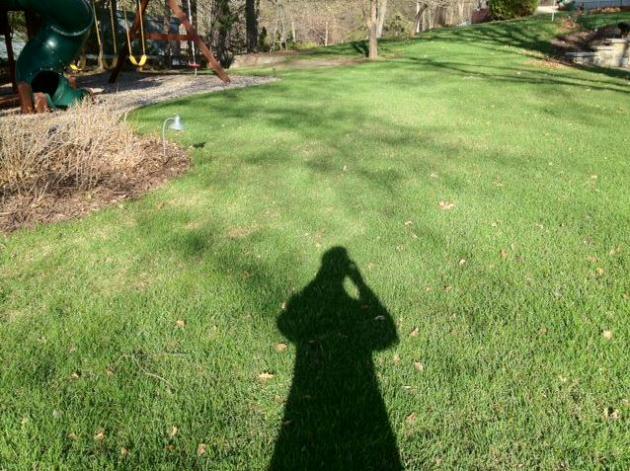
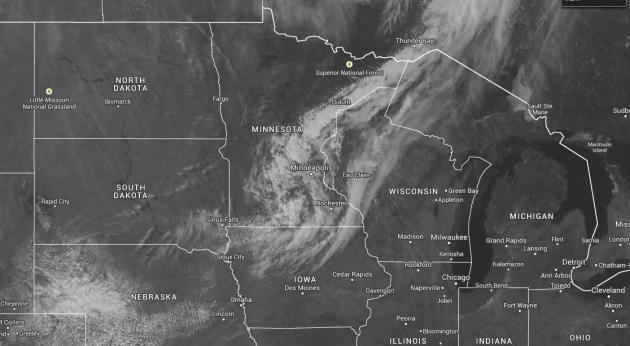
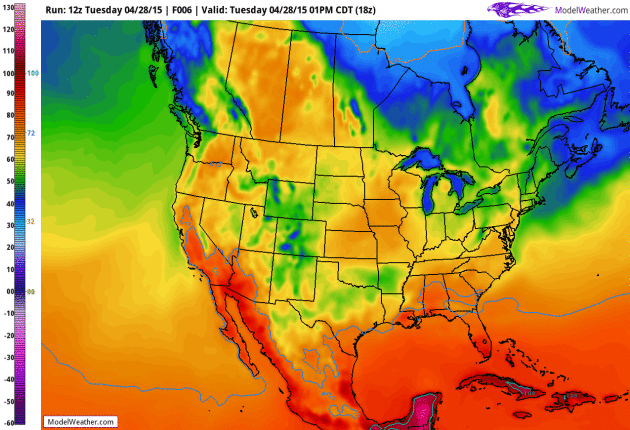
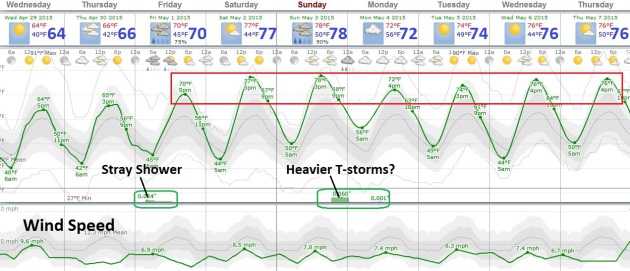
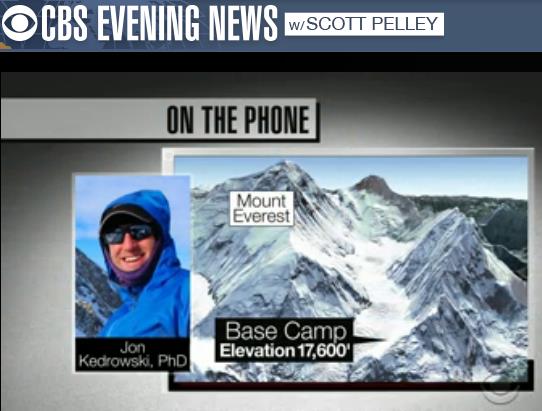
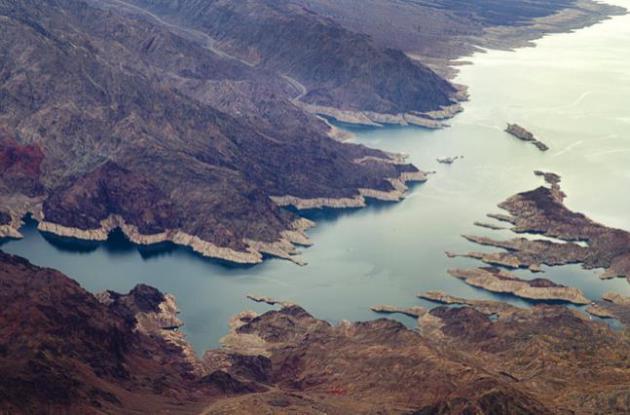
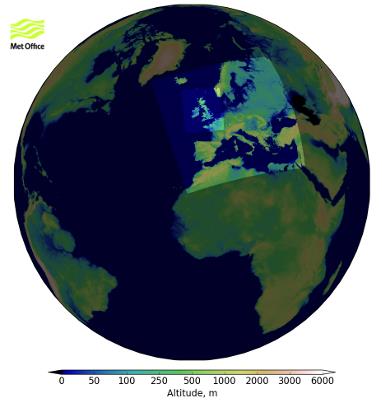
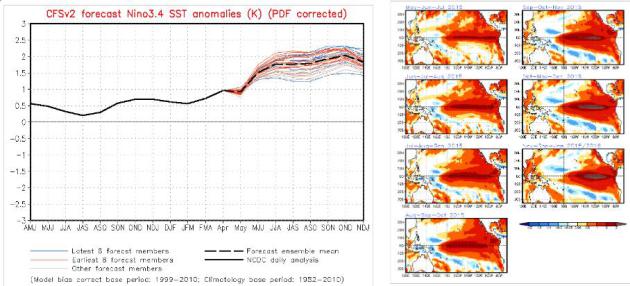
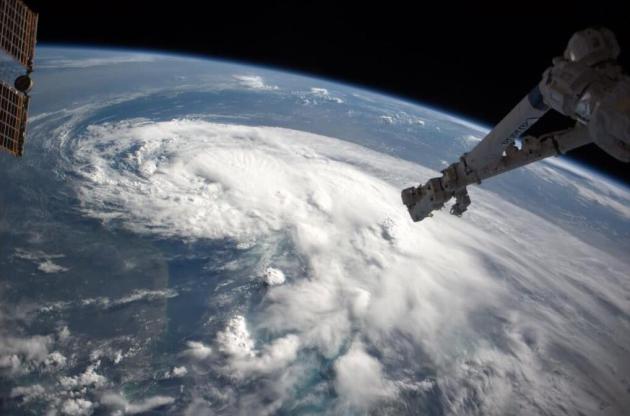
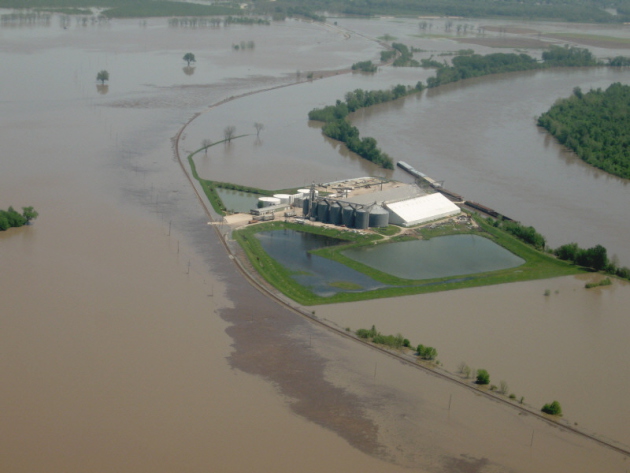
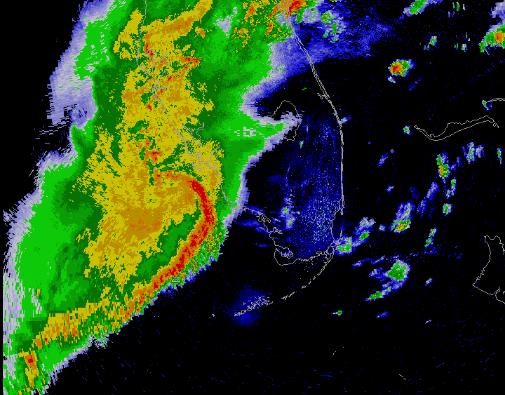
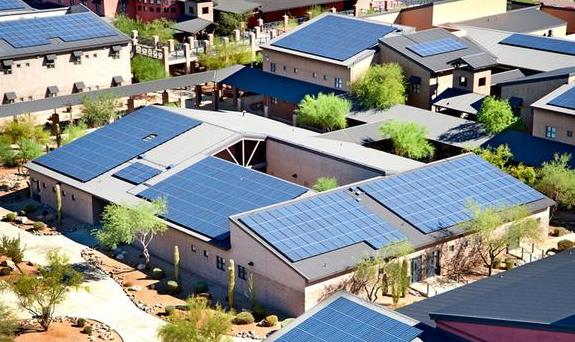


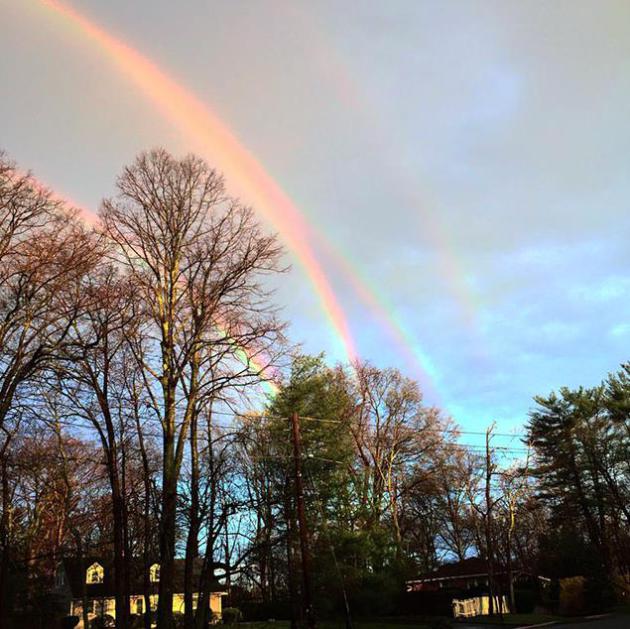
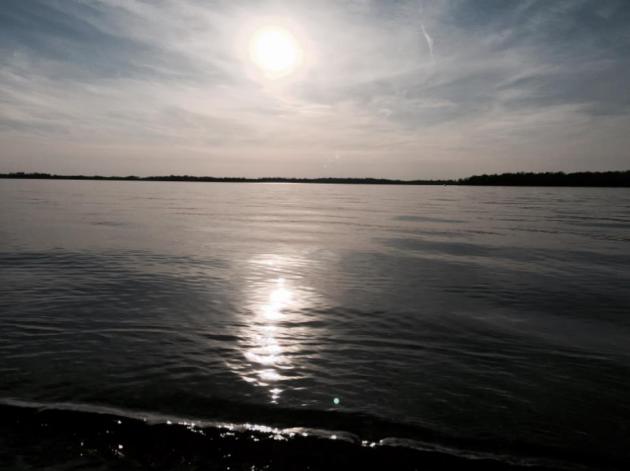
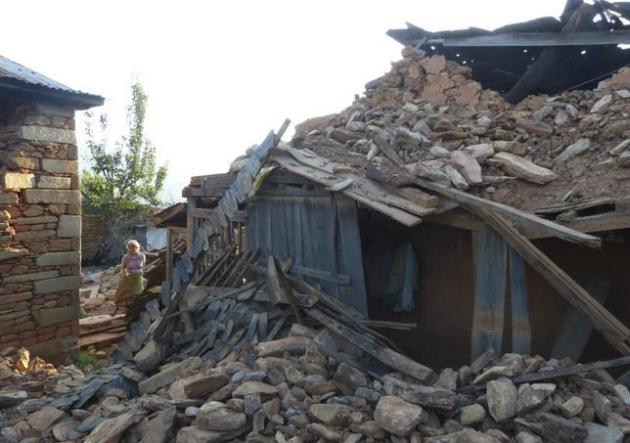

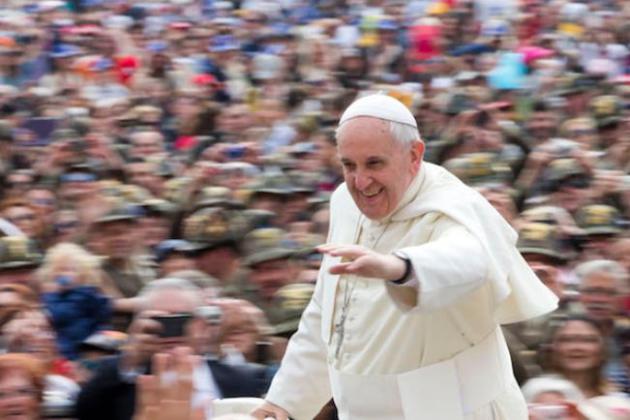
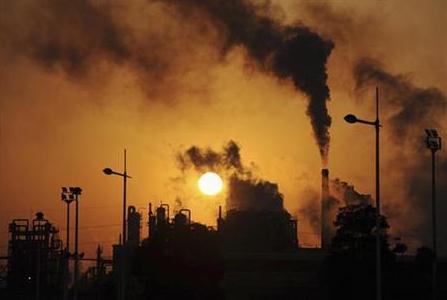
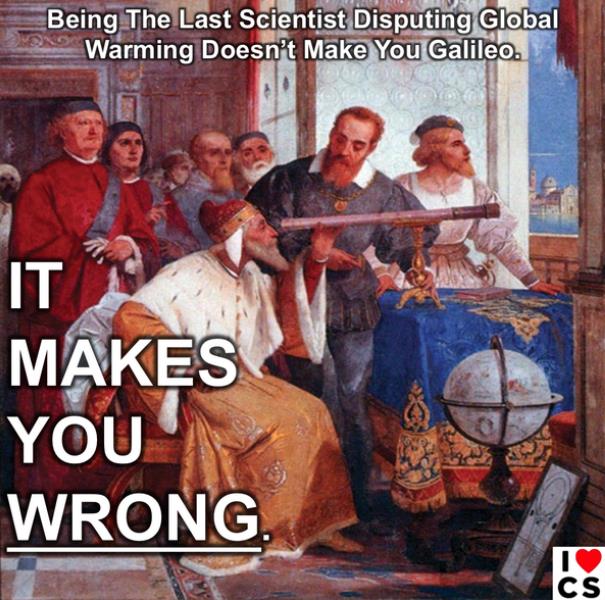

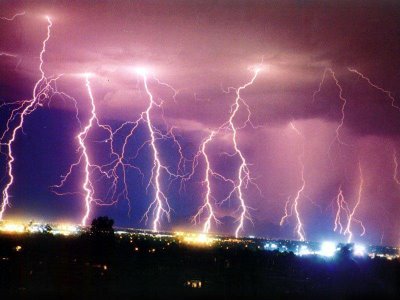


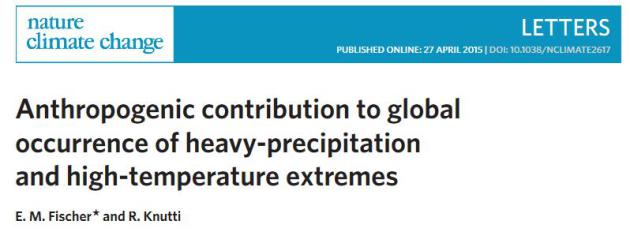
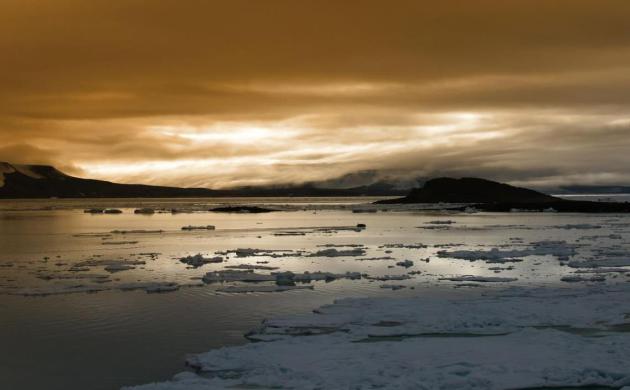
No comments:
Post a Comment